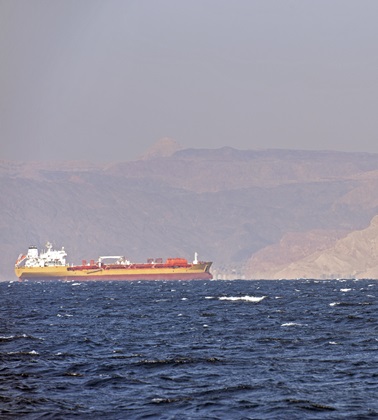
The escalation in the Red Sea crisis, which has already caused significant disruption to global trade, risks causing another wave of inflation in 2024, market commentators have warned.
Last night, the UK and US launched airstrikes against Houthi rebel bases in Yemen, following a series of attacks on commercial vessels and oil tankers in the Red Sea. The two countries said they acted in self-defence and to protect free passage in the region, accusing the Houthis of threatening the global economy and security by using drones and missiles on civilian and military ships.
The Houthis, who are backed by Iran and have been fighting a civil war against the internationally recognised government of Yemen since 2014, launched the Red Sea attacks in December in support of Hamas in its conflict with Israel.
UK prime minister Rishi Sunak said: “Despite the repeated warnings from the international community, the Houthis have continued to carry out attacks in the Red Sea, including against UK and US warships just this week.
“This cannot stand. The United Kingdom will always stand up for freedom of navigation and the free flow of trade. We have therefore taken limited, necessary and proportionate action in self-defence, alongside the United States with non-operational support from the Netherlands, Canada and Bahrain against targets tied to these attacks, to degrade Houthi military capabilities and protect global shipping.”
The Houthi rebels declared their support for Hamas after the 7 October attacks on Israel, stating that they will attack ships heading to Israel. Following drone and missile attacks on several commercial vessels (there have been 26 to date), Mediterranean Shipping Company – the world's largest shipping group – said in December it would stop using Red Sea routes.
In response to last night’s airstrikes, Houthi spokesperson Mohammed Abdulsalam posted on X: “We affirm that there is absolutely no justification for this aggression against Yemen, as there was no threat to international navigation in the Red and Arabian Seas. The targeting was and will continue to affect Israeli ships or those heading to the ports of occupied Palestine.”
The escalation of tensions in the Middle East could spark a second wave of inflation in 2024, investment commentators have warned. The Red Sea route is crucial for global trade and the attacks have caused many shipping companies to avoid it, instead sending their vessels around Africa and adding to transportation costs.
Susannah Streeter, head of money and markets at Hargreaves Lansdown, said: “Inflationary risks are front and centre again, as the US and the UK and their coalition allies strike targets in Yemen, amid warnings from major companies that shipping delays could see prices ramp up.
“While the military action is aimed at incapacitating Houthi rebel units and limiting attacks on shipping, which has caused such widespread disruption, there is concern that it could lead to a wider escalation of conflict in the Middle East.”
German economic institute IfW Kiel suggests the number of containers travelling through the Red Sea region has dropped 60% from around 500,000 in November to 200,000 in December. Re-routing ships from Asia to Europe around Africa’s Cape of Good Hope adds, on average, an extra 10 days in travel time and $1m in extra costs per ship.
“At least 20% of global shipping is being disrupted by long journey times and port congestion. The risk is that supply chains are tightening up around the globe, increasing the risk of bottle necks which could once again fuel inflation,” Streeter said.
She also pointed to reports that the British government has been modelling scenarios where the oil price goes up by $10 a barrel if the Red Sea crisis continues. Oil prices have already “climbed sharply” since the Red Sea attacks started December with Brent Crude now around 7% higher.
Stephen Innes, managing partner at SPI Asset Management, said: “Even a $10 per barrel increase in oil prices could have moderate inflationary effects, potentially influencing the Fed.
“Investors are cautioned not to underestimate the potential impacts of the conflict on global risk assets and oil-dependent economies, where even the current low probability of a broader conflict warrants some risk premium, currently not fully priced into the markets.”
Innes added that investors looking to mitigate risk in their portfolios should be considering safe havens, assets that may benefit from an escalating geological shock and option hedges. He pointed to long positions in the US dollar and Swiss franc, allocations to commodities and equity puts (used a hedge against the risk of a decline in stocks) following a significant decline in volatility last month.
“Or simply cash in, king, while parking your funds in a 5 % money market garage,” he finished.




